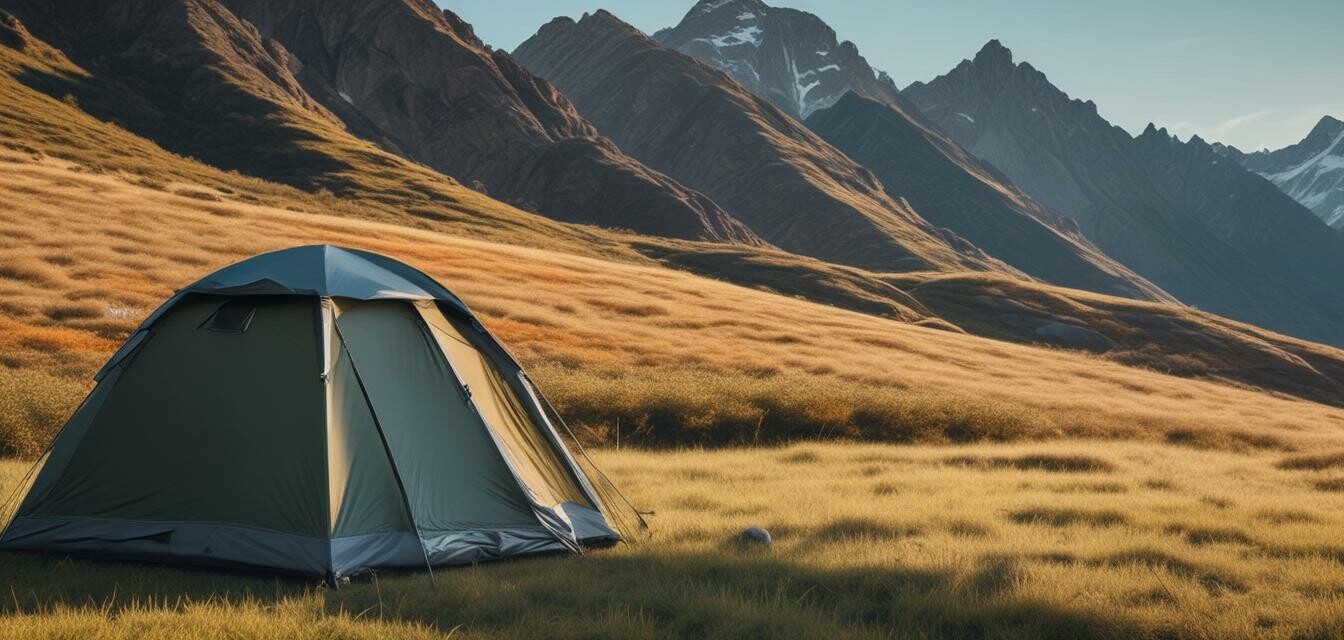
The Ultimate Guide to Buying the Perfect Camping Tent
Key Takeaways
- Understand different types of camping tents and their features.
- Consider the size and capacity you'll need for your trips.
- Evaluate the materials and durability of the tent.
- Look for additional features that cater to your camping style.
- Read reviews and compare options to find the best value for your budget.
Camping is a wonderful way to immerse yourself in nature, and choosing the right camping tent can make all the difference in your outdoor experience. This guide will help you navigate through the options available and find a tent that meets your needs, ensuring your camping trips are comfortable and enjoyable.
Types of Camping Tents
There are several types of camping tents designed for specific needs and camping styles. Here’s a quick overview:
| Type of Tent | Description | Best For |
|---|---|---|
| Dome Tents | Round shape that provides great stability, easy to set up. | General camping and family outings. |
| Backpacking Tents | Lightweight and compact for carrying on hikes. | Hikers who need a portable option. |
| Family Tents | Spacious with multiple rooms and higher ceilings. | Camping with families or groups. |
| Camping Tents for All Seasons | Durable and insulated for different weather conditions. | Year-round camping adventures. |
| Pop-Up Tents | Quickly sets up, ideal for spontaneous trips. | Casual campers and festivals. |
Choosing the Right Size
When selecting a camping tent, size is one of the most important factors. Consider the following:
- Occupancy: Determine how many people will be using the tent.
- Storage: Ensure there’s enough space for personal belongings.
- Comfort: Factor in room to move around inside the tent.
Materials and Durability
Different materials contribute to the overall quality and longevity of tents. Here are some materials to consider:
| Material Type | Properties | Pros | Cons |
|---|---|---|---|
| Nylon | Lightweight, fast-drying, strong. | Highly portable and versatile. | Can wear out quicker under UV light. |
| Polyester | Resistant to UV rays and water. | Durable and holds up in various conditions. | Generally heavier than nylon. |
| Cotton Canvas | Breathable, thick, and heavy. | Highly durable and very comfortable. | Not suitable for backpacking due to weight. |
Features to Consider
When choosing a camping tent, it's vital to assess applicable features. Here are some key features to look for:
- Weather Resistance: Check the tent's waterproof rating.
- Ventilation: Look for mesh panels to reduce condensation.
- Setup Mechanism: Consider how easy or complex the setup will be.
- Pockets and Storage: Internal pockets can help keep your gear organized.
Comparing Tent Options
Once you have a better idea of what you need, you can start comparing options. Here’s how to effectively make comparisons:
- List your must-have features.
- Research various brands and read reviews.
- Look at pricing and value for your budget.
- Assess the warranty and return policy.
Where to Buy Your Camping Tent
Camping tents can be purchased from a variety of places. Online retailers tend to offer a wide selection, while local outdoor stores provide the benefit of hands-on experience. Check out:
- Camping tents from specialist retailers.
- Department stores that have outdoor sections.
- Online marketplaces for competitive pricing.
Conclusion
Choosing the perfect camping tent is essential for an enjoyable outdoor experience. By understanding the different types of tents, knowing what size you need, and being aware of the features that matter most, you'll be well-equipped to make an informed decision. For more information on camping gear, be sure to check out our other guides, such as air mattresses and camping cookware.
Pros
- Provides shelter and comfort in outdoor environments.
- Offers protection from the elements.
- Available in various sizes and styles.
- Can accommodate different activities and needs.
Cons
- Can be expensive depending on features.
- Some models require careful setup and takedown.
- Weight and bulk can be an issue for backpacking.
Tips for Beginners
- Start with a smaller tent if you’re new to camping.
- Practice setting up your tent before the trip.
- Always check the weather forecast before heading out.
- Invest in a good ground tarp to protect the tent floor.